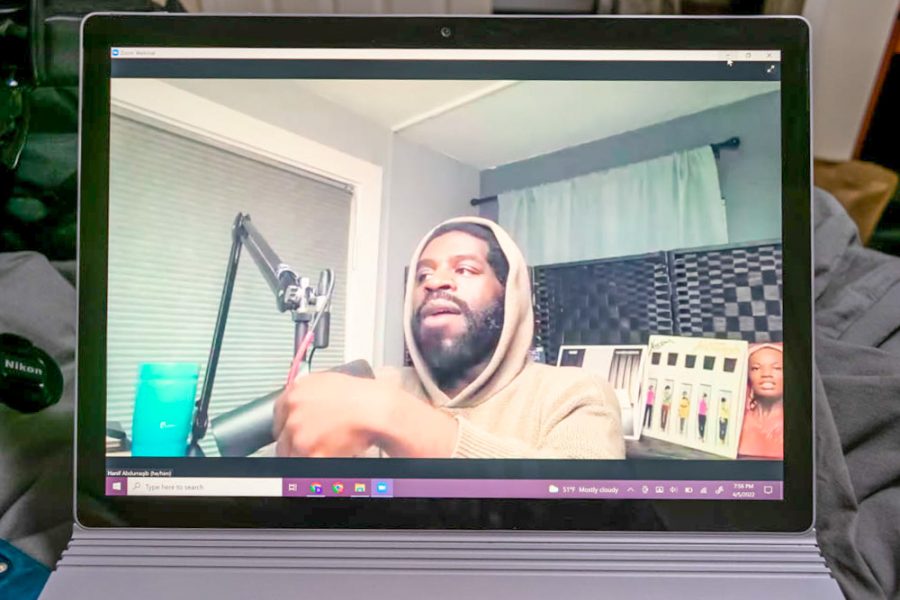GV hosts poet Hanif Abdurraqib for Art Celebration lecture series
Apr 11, 2022
Grand Valley State University College of Liberal Arts and Sciences hosted poet and author Hanif Abdurraqib on April 6 along with a special feature from Louis Moore, an associate professor of history at GVSU.
The Art Celebration lecture is a 20-year-old tradition at GVSU. The lecture provides free, meaningful art-related programs for the GVSU community and was hosted virtually this year.
Amorak Huey is a professor of writing at GVSU. Huey opened the art celebration lecture event.
“(Abdurraqib has a) keen eye for the structures and details that make up American culture,” Huey said. “And a keen ear for the language articulates how those structures work, and what they say about us.”
Abdurraqib is a poet, essayist, and cultural critic from Columbus, Ohio. He’s been published in many journals including “Muzzle,” “PEN America” and “Vinyl.” Abdurraqib has published essays and music criticism in “The New York Times” along with published poetry collections. He released his book titled “A Little Devil In America with Random House” earlier this year.
Abdurraqib read a piece about the fears that come with losing hair and graying hair. He used Michael Jordan’s hair loss and explored how it broke the stigma around losing hair.
“It (was part of Michael Jordan’s) promise,” Abdurraqib said. “There’s a way to be cool on the other side of what befalls your scalp.”
Abdurraqib spoke about the enjoyment he finds through collecting. He spoke about how he collects various things from bobbleheads to Black magazines. Although he mainly spoke about collecting records.
“There is something about the search that is fulfilling,” Abdurraqib said. “I cherish things more when I can do the seeking.”
The Brooklyn Academy of music has allowed Abdurraqib to work with artists while having creative freedom over his work. Abdurraqib expressed interest in one day working in Columbus, Ohio.
“I wanted to see what would happen if you told an artist, ‘Here’s a block of time and space and you can do what you want,'” Abdurraqib said. “I wanted to see what would happen with that creative freedom.”
Abdurraqib said that he received trust and built strong relationships with music artists, which can be uncommon for music critics.
“There’s a kind of generosity that I believe I can translate to a page,” Abdurraqib said. “Historically, critics who can provide that generosity have been trusted by their artist.”


























